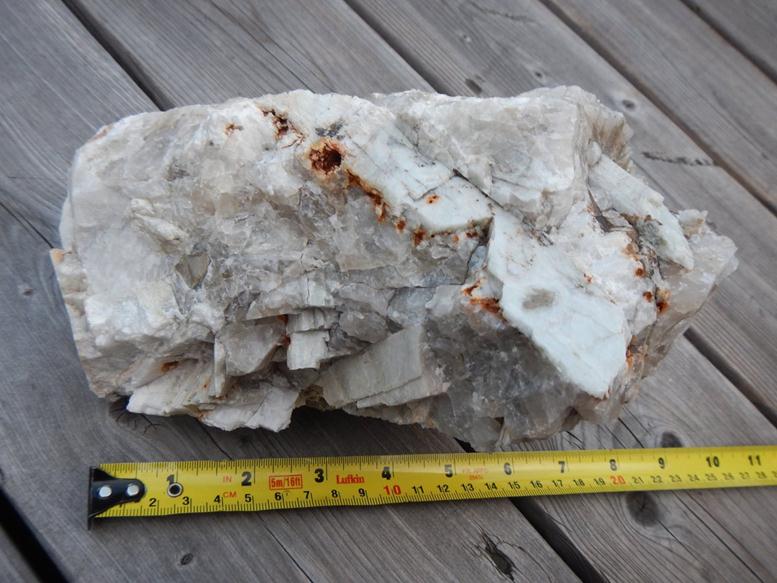With lithium prices rising and an ever-increasing demand from the lithium-ion battery sector, many believe that over the next several years, the demand for lithium will increase by roughly 60% to 250%. In fact, there are analysts who believe that lithium will sell for 50% or more above historical levels. If you are thinking about investing in lithium, the time to do it might be approaching.
As a result, numerous companies are scrambling around looking for new sources of the metal. Currently, most of the globe’s lithium is produced in Australia, Chile, and Argentina, however, there has been an increase in lithium in Nevada as well.
This increase is partly due to Tesla Motors (NASDAQ:$TSLA) who have announced that they will be building a lithium-ion battery gigafactory in the state of Nevada. The Clayton Valley is considered to be Nevada’s Lithium Hotspot and a lot of this representation stems from the fact that the Silver Peak mine, owned by Albemarle and the US’s only producing lithium brine operation, is located in the Valley.
Keep reading to learn more about Clayton Valley’s lithium companies.
An Overview: The Clayton Valley
Based on a report conducted by the United States Geological Survey, the Clayton Valley covers 100 square kilometers and has a catchment area of 1,400 square kilometers. This is due to the Valley sitting lower than 4 of the adjacent basins, and all of these basins are hydrologically linked.
The report further explains that “in this case, it is the combined area of all five linked catchments that matters, making the effective area of the Clayton Valley Li-brine system much larger.”
According to the USGS, the Clayton Valley is the “best-known deposit in the world” in terms of lithium, and there are numerous factors which indicate that the area has lithium resource potential. These factors include the following:
- There is a closed, tectonically active basin
- The Clayton Valley has a dry climate
- Due to hot springs and young volcanoes, the Clayton Valley has elevated heat flow
- The USGS notes that in the 1970’s, hectorite was thought to have existed in the basin
Companies with lithium projects in the Clayton Valley:
As mentioned, there are vast reasons for lithium companies to be interested in Nevada’s Clayton Valley. Here is a list of the companies who are currently working on lithium projects in the valley:
– Advantage Lithium (CVE:$AAL)
– Cypress Development (CVE:$CYP)
– Lithium X (NYSEARCA:$LIT)
– Nevada Energy Metals (FRA:$NMK)
– Nevada Sunrise Gold (CVE:$NEV)
– Noram Ventures (CVE:$NRM)
– Pure Energy Minerals (CVE:$PE)
– Red Mountain Mining (ASX:$RMX)
– Sienna Resources (CVE:$SIE)
– Supreme Metals (CNSX:$ABJ)
For those interested in lithium investing, but do not want to pursue a company working on projects in the Clayton Valley, here is a list of lithium companies that are nearby in Nevada:
– Caeneus Minerals (FRA:$MXB)
– Dajin Resources (CVE:$DJI)
– Enertopia (CNSX:$TOP)
– Eureka Resources (OTCMKTS:$MHRCQ)
– Iconic Minerals (CVE:$ICM)
– LiCo Energy Metals (CVE:$LIC)
– MacArthur Minerals
– Ultra Lithium (CVE:$ULI)
– Uranium Resources (NASDAQ:$URRE)
– Lithium Consolidated (ASX:$LI3)
– Reedy Lagoon (ASX:$RLC)
It’s worth noting that some of these companies on the list are quite advanced, while others have only recently claimed a role in the valley. Take Pure Energy Minerals, for instance. This company completed a resource estimate for its project in the valley in July of 2015 as well as signing a lithium supply agreement with Tesla.
Additionally, it is important to recognize that there are other companies, including Dajin Resources, that started to explore for lithium in Nevada well before the excitement around the metal arose.
Regardless of whether an investor decides to invest in a company in the Clayton Valley or in a company that works in a nearby Nevada area, there are plenty of options for investors to comb through. Keep in mind, however, that only time will tell which companies in the Clayton Valley will succeed.
Featured Image: Twitter








